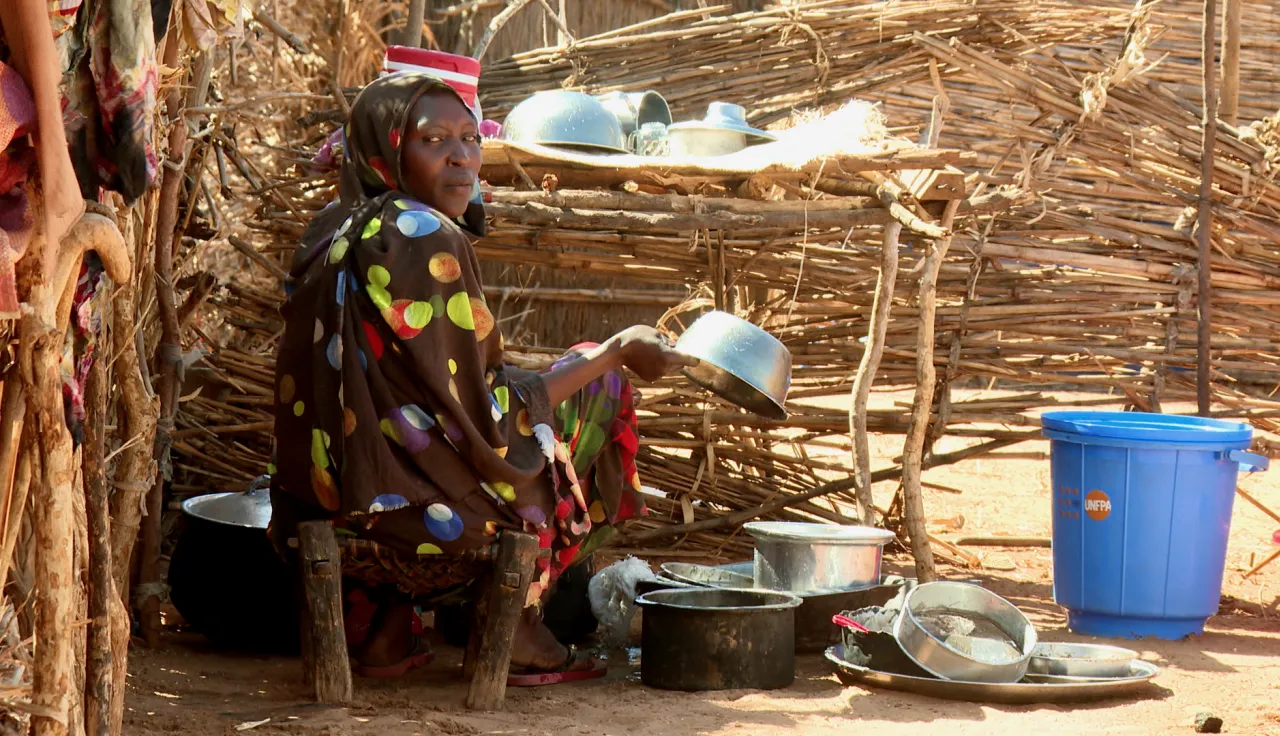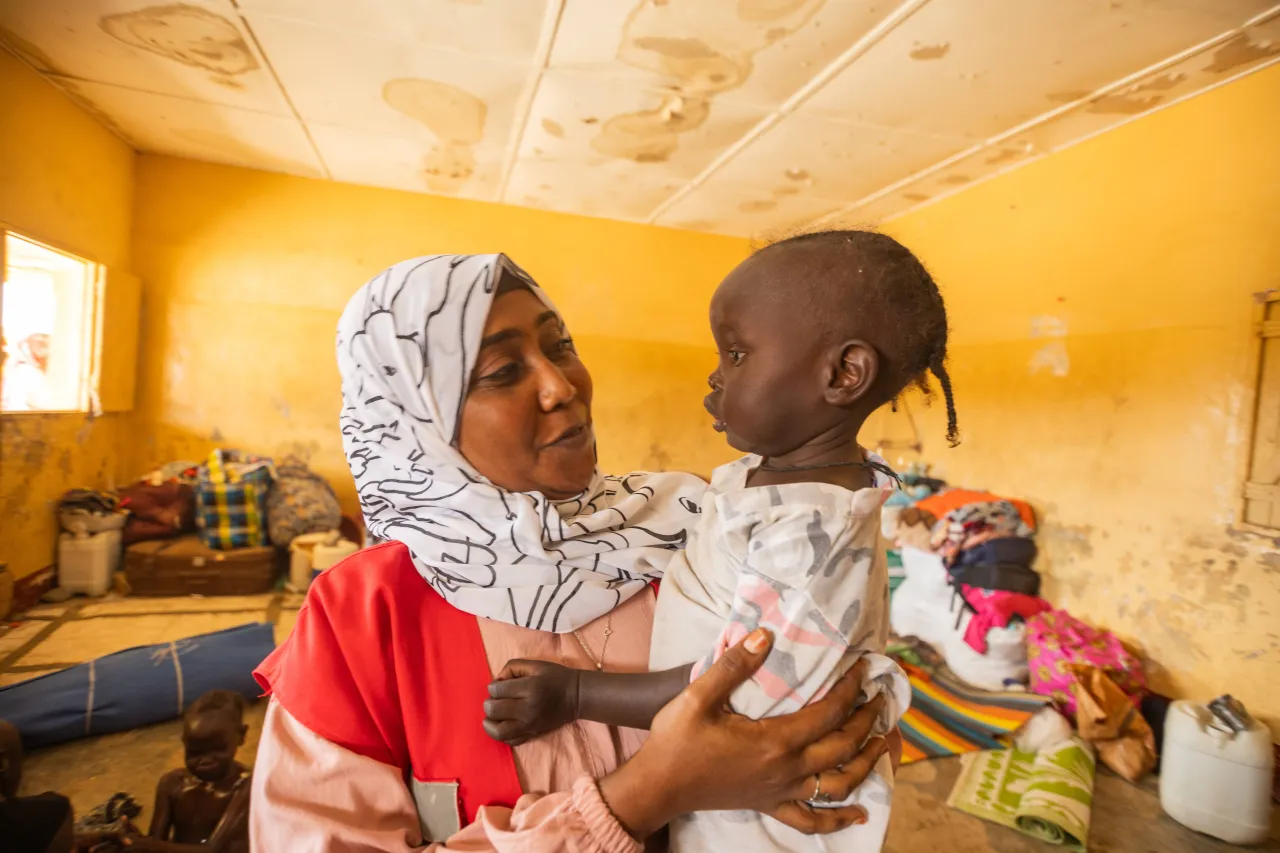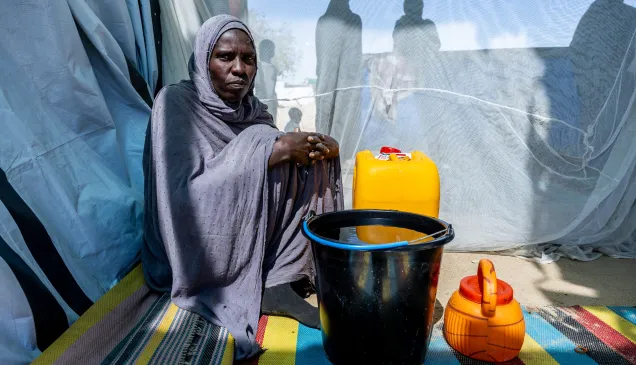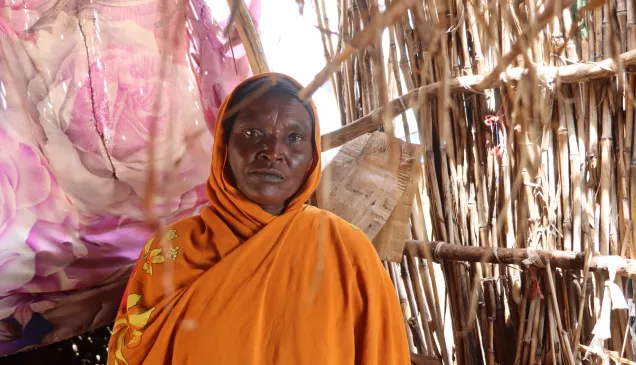Sudan: Operational update - ICRC response in and around Al Fasher, North Darfur

The humanitarian situation in Al Fasher, North Darfur, has deteriorated further following the takeover of the city ten days ago after more than 18 months of siege.
Thousands of families have fled towards Tawila and nearby areas in search of safety. Many arrived with nothing - some even without shoes on their feet. Reports point to grave mistreatment of civilians.
Overview of the humanitarian situation
Since mid-April 2023, the conflict in Sudan has forced over 12 million people from their homes – the highest displacement figure ever recorded for a single country. More than 30 million people now need humanitarian assistance and protection, while 70 to 80% of health facilities in conflict-affected areas are no longer functioning.
The war has also compounded Sudan’s worst cholera outbreak in years, claiming more than 2,400 lives and threatening millions with waterborne diseases.
ICRC response in and around Al Fasher
Despite extremely limited access and deteriorating security, the ICRC continues to work alongside the Sudanese Red Crescent Society (SRCS) to respond to urgent needs in Tawila, which has become the main centre for internally displaced persons (IDPs) in North Darfur.
Health
- We have delivered essential medical supplies and operational support to the hospital in Tawila and nearby health points, including dressing materials, staff incentives and contributions to running costs.
- We have supported the Rapid Response Team in combating cholera; all reported cases in Tawila have been cleared. Current efforts focus on prevention among newly displaced families from Al Fasher.
- Continued provision of medicines and surgical materials to ensure life-saving care for victims of shelling and gunfire injuries.
Cash assistance
- The ICRC has provided multipurpose cash assistance (MPCA) to 10,000 households – around 70,000 people – enabling families to purchase food, shelter materials and health care.
Water and sanitation
- We are supporting restoration of clean water systems, chlorination campaigns, and hygiene promotion to prevent the spread of cholera and other waterborne diseases.
Restoring family links
- The ICRC’s Protection of Family Links (PFL) team and the SRCS antenna are operational in Tawila. Within the first week, more than 200 phone calls were facilitated for families separated by conflict.
Continuing our humanitarian work
The ICRC remains committed to supporting people affected by the conflict across Sudan. Together with the Sudanese Red Crescent Society and Movement partners, our neutral and independent humanitarian action aims to preserve life, restore dignity, and uphold the rules of war even under the most challenging conditions.




